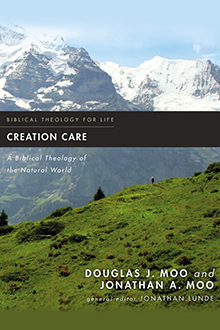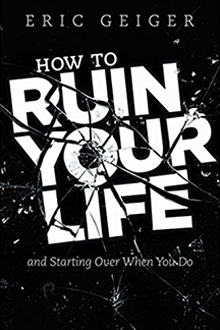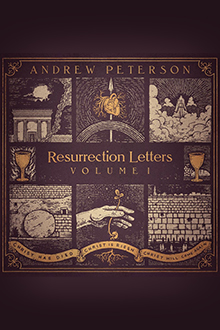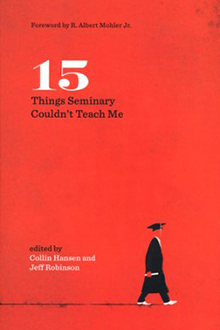 |
 |
 |
 |
Creation Care: A Biblical Theology of the Natural World by Douglas J. Moo and Jonathan A. Moo (Zondervan 2018, $22.34)
Review by Gabriel Reyes-Ordeix
The term “creation care” is a buzzword. It refers to human ethical responsibility toward the non-human world, but is often left vague and highly politicized. Creation Care, written by Douglas and Jonathan Moo (father and son) seeks to prove that this ethical commitment to caring for the planet is much more than a passing fad. It comes from Scripture itself. “We care for creation because we care about creation,” they write.
The Moos argue that the understanding of this stewardship is not isolated from one’s theology. Rather, creation care is interrelated with the doctrines of God, creation, man, and subsequently with the gospel itself. They write: “Our inquiries about how to care for creation confront us with central questions about God, the world, and ourselves and cannot be separated from the rest of the Christian gospel.”
The book gives three foundations for the Christian’s involvement in creation care: first, a need to address the present “environmental” problems; second, to become active in creation care is to be faithful witnesses to Christ; lastly and most importantly, “talking about creation care is needed because it is taught in Scripture.” Creation Care presents a faithful and balanced vision of the created world, and why Christians should care about it.
How to Ruin Your Life: and Starting Over When You Do by Eric Geiger (B&H 2018, $16.99)
Review By Grant Mitchell
David ruined his life. If “the man after God’s own heart” can do that, so can all of us. That’s why Eric Geiger published his newest book, How to Ruin Your Life: and Starting Over When You Do. The book draws on David’s life as an example from which all Christians need to learn. How to Ruin Your Life opens looking at what an imploded life looks like, drawing on Geiger’s own experience watching friends and colleagues make catastrophic decisions.
Of course, David’s life didn’t stay ruined. And Geiger, a vice president of LifeWay and an alumnus of Southern Seminary, doesn’t think yours has to either. “No matter how great your sin is, his grace is greater,” he writes. Christians often fear being “disqualified,” but Geiger shows that all Christians are disqualified in their sin. But the gospel promises they can repent, be made new, and qualified again.
Resurrection Letters, Vol. 1 by Andrew Peterson (Andrew Peterson 2018, $8.99 on iTunes)
Review by Matt Damico
In 2008, Andrew Peterson released Resurrection Letters, Vol. 2, leaving fans to anticipate when they’d hear volume one. Here we are, a decade later, and Resurrection Letters, Vol. 1 is upon us.
The album puts all of Peterson’s genius on display: provocative, moving, and richly biblical lyrics set to attractive and accessible melodies and hooks. The song’s opening track, “His Heart Beats,” is a pulsing exploration of the physical nature of Christ’s resurrection and victory over death that features some classic Petersonian writing: “He rises and his work’s already done, so he’s resting as he rises to reclaim the bride he won.”
Another standout track is the pre-released “Is He Worthy?” which uses a small choir to carry out a call-and-response format with Peterson. “Remember Me,” in a nice change of pace, riffs on the cry of the thief on the cross with a rhythmic, almost Bob Dylan-esque delivery that works surprisingly well.
If you’ve liked Peterson’s music in the past, you’re going to like this album. It’s Peterson through-and-through, and in the best way possible.
15 Things Seminary Couldn’t Teach Me by Collin Hansen and Jeff Robinson, eds. (Crossway 2018, $17.99)
Review by Andrew J.W. Smith
For many students, seminary is a once-in-a-lifetime opportunity to learn from the leading scholars in systematic theology, biblical studies, and missions and evangelism. Many describe it as “drinking from a firehose” — a completely overwhelming and immensely satisfying four-to-six year experience.
Many graduates leave their seminaries armed with a Greek New Testament in one hand and a 900-page tome on church polity in the other, ready to make a difference for the kingdom in their first church. Then, harsh reality hits. A seminary graduate’s first pastorate often forces him to come face-to-face with situations his seminary education couldn’t have prepared him for.
In a new Crossway book edited by Jeff Robinson Sr. and Collin Hansen, veteran pastors and leaders offer their own stories from the front lines and even show a few battle scars.
“Seminary did not teach me how deeply ministry could wound,” writes Robinson in the book’s opening chapter. “But it couldn’t teach me that, for seminary is to ministry what basic training is to combat: a training ground, a relatively safe place to acquire the tools of ministry — Greek, Hebrew, exegesis, homiletics, systematic theology, church history, and much more. Basic training is not war, and seminary is not local church ministry. Nothing but the battlefield of ministry could have prepared me for the pain ahead.”
In his introduction to the book, Southern Seminary President R. Albert Mohler Jr. compares pastoral ministry to a general on a battlefield, noting that graduating at the top of one’s class at West Point does not prepare a man for war like experience in a real battle can. Whereas there are things even West Point can’t teach a young military man, Mohler writes, so seminary is necessary but insufficient to prepare a young man to preach and minister to a church.
The book provides helpful words of wisdom about how the seminary student can prepare for the rigors of day-in, day-out ministry. It addresses very practical situations like what to do when no church hires you, the constant temptation of pride and self-absorption, and how to handle church conflict. The book will benefit current seminary students who hope to one day be pastors, but will be an oasis of wisdom for anyone currently pastoring a church.
“I would read the What West Point Couldn’t Teach Me book with genuine interest,” writes Mohler in his introduction. “You will read this book with nothing less than urgency. Don’t miss a single lesson to be learned — but keep in mind that every pastor learns the most important lessons only through years of ministry. At the same time, learn as much as you can before you hit the battlefield alone. It matters.”




